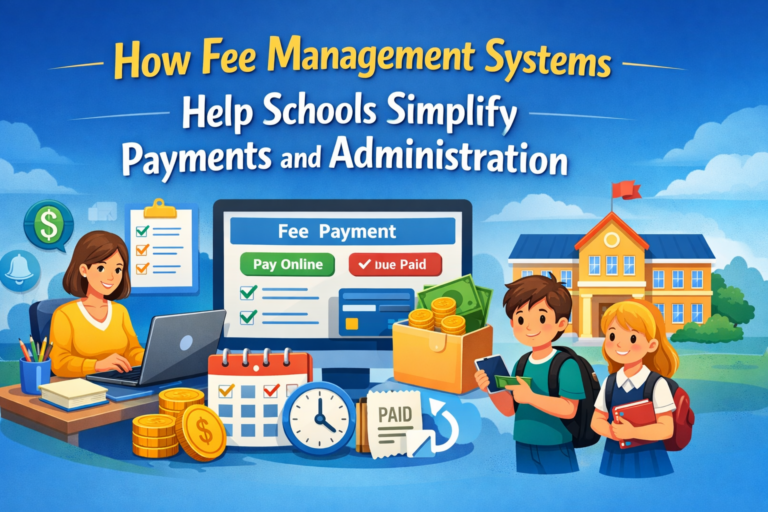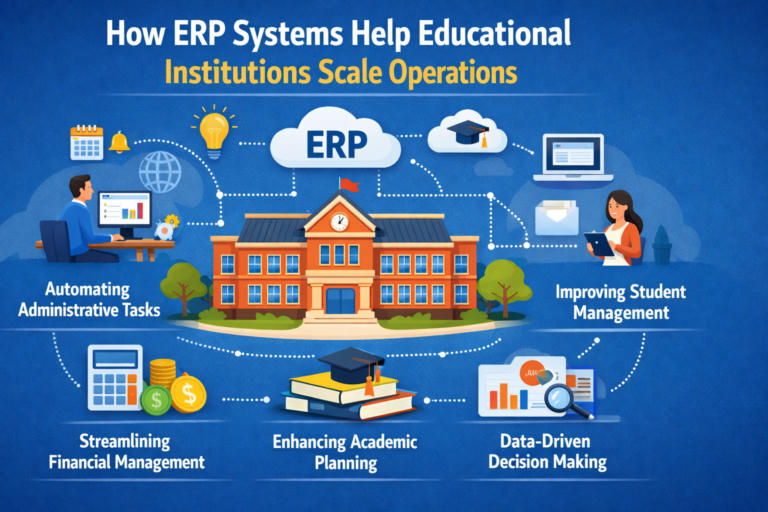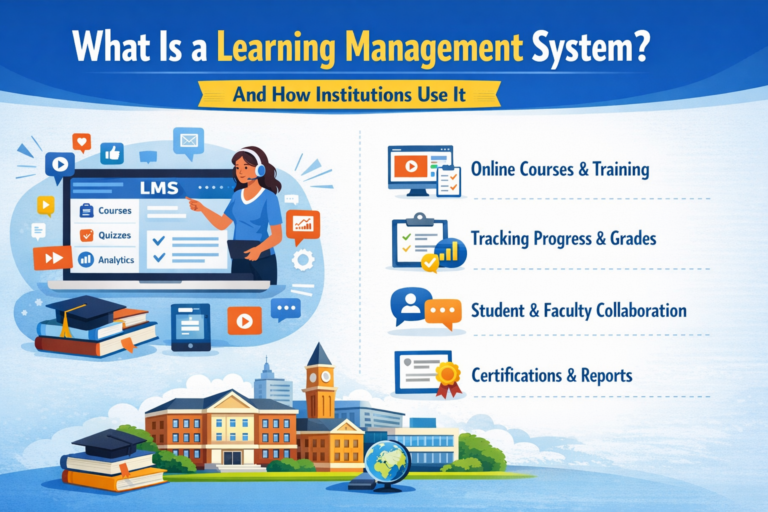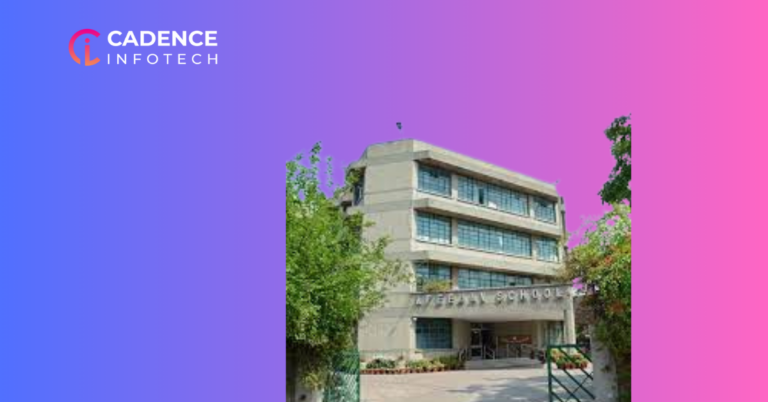Academic integrity is considered one of the educational institutions’ biggest cornerstones of a fair evaluation system and ensures that students are evaluated based on their actual abilities and efforts.
However, specific issues, such as inconsistent grading, untimed evaluations, and technological barriers, can impact this integrity and adversely affect the student’s performance. Moreover, these issues can also weaken students’ parents’ trust in the evaluation system.
This is why schools need an evaluation system that helps eliminate these issues, offers viable solutions to help curb the problem of inconsistent grading, and also provide a window for the students parents to constantly monitor their child’s performance.
In this blog, we’ll introduce one such evaluation system that helps foster a trustworthy & transparent learning ecosystem and helps schools maintain academic integrity by enabling accurate assessments.
But before we delve into understanding the Evaluation System, let’s shed some light on how schools struggle to ensure academic integrity and the impact of these struggles.
| Laura Greenstein, author of What Teachers Really Need To Know About Formative Assessment, explains in her blog, ” Assessment is more than a test; it is physical, social, and emotional, too.” |
What challenges do schools face in ensuring fair and accurate assessments, and what is their impact?
Ensuring & maintaining integrity is crucial for all schools, but it is often met by specific challenges that can impact the quality of learning. Let’s take a look at those challenges and analyze the impact they have on student learning:
Challenges faced by schools
Lack of Standardization
One of the most significant challenges in educational assessment is the need for more standardization. Without a standardized approach, assessment practices can vary widely. For instance, some schools may prioritize formative assessments, while others might rely on summative assessments, leading to discrepancies in evaluating student performance. This lack of cohesion creates obstacles in comparing academic results among students from different backgrounds and educational environments. The absence of standardized metrics often confuses what constitutes adequate performance.
Assessment Bias
Assessment bias refers to any systematic error that affects the validity and reliability of educational assessments, leading to unfair advantages or disadvantages for particular groups of students. Understanding the impact of assessment bias on students is crucial in addressing this issue. Cultural stereotypes, socioeconomic status, and language proficiency often contribute to this bias. These elements can skew assessment results, causing educators to misinterpret students’ capabilities.
Resource Constraints
Schools with limited resources often need help with monitoring academic integrity and ensuring fair evaluations. These constraints may include funding, personnel, and equipment and hinder effective educational assessment. These constraints profoundly impact the quality and accuracy of assessment practices, leading to suboptimal outcomes for learners. Teachers often need help implementing comprehensive assessment methods in educational settings with limited resources.
Technological Disruptions
The rise of digital tools and platforms can complicate efforts to uphold academic integrity. Ensuring that online assessments are secure and that students do not have access to unauthorized resources is a significant challenge.
Impact of Inaccurate Evaluations on Student Learning:
- Undermined Trust: Inaccurate or biased evaluations can erode trust between students and educators. If students perceive assessments as unfair or biased, it can lead to disengagement and diminished motivation.
- Unfair Academic Outcomes: When evaluations are inaccurate or biased, students may receive grades that do not accurately reflect their abilities and efforts. This can affect their academic progress, opportunities for advanced education, and future career prospects.
- Decreased Learning Opportunities: Inaccurate evaluations may be needed to identify areas where students need improvement. This can hinder their ability to address learning gaps and achieve their full potential.
- Emotional and Psychological Impact: Receiving unjust grades or feedback can negatively impact a student’s self-esteem and mental health. Students who feel unfairly evaluated may experience increased stress and anxiety.
- Reputational Damage: Schools with a reputation for biased or inaccurate evaluations may need help to attract students and faculty. Maintaining a reputation for fairness and accuracy is crucial for institutional credibility.
To combat these challenges and mitigate their impact, schools should implement tools that can assist them in streamlining the learning and evaluation processes, preventing cheating, and ensuring fair and accurate assessments.
Understanding the Evaluation System
Learnia’s Evaluation System is a comprehensive tool designed to streamline and enhance the assessment process within educational institutions. It integrates with LMS and Parent App to provide a cohesive approach to managing student evaluations.
As mentioned earlier, maintaining fairness and accuracy in assessments is paramount to ensuring quality education. The Evaluation System is designed to uphold these core principles, providing educators and institutions with a robust tool for evaluating student performance.
Some of the top features of the Evaluation System include:
- Academic Tracking: Structured exam setup, marks entry simplicity, subject-wise mapping, teacher-specific access.
- Visual Records: Intuitive learning capture, co-scholastic performance tracking, teacher mind-map mimicking, fast mark entry.
- Insightful Reports: Beautiful narrative cards, customizable rich analysis, web/mobile parent access, secure data handling.
- Consolidated Marksheets: One-click template generation, customizable class reports, eliminated manual work, and enhanced PTA meetings.
How does Learnia’s Evaluation System stand out from other tools of evaluation?
Here are some features that make the Evaluation System different than other evaluation tools:
Assessment Creation and Management: Educators can easily design and manage various assessments, such as quizzes, exams, and assignments. The system supports diverse question formats and allows customization to align with specific learning objectives.
Automated Grading: The system offers automated grading features, reducing the time and effort required for manual evaluation. By applying predefined criteria, it ensures consistency and objectivity in grading.
Real-Time Feedback: Educators can provide timely, actionable feedback, helping students understand their performance and areas for improvement. This real-time interaction supports a more transparent and equitable learning environment.
Detailed Reporting and Analytics: The Evaluation System generates comprehensive reports and analytics on student performance. Educators can track individual and group progress, identify trends, and make data-driven decisions to enhance instructional strategies.
Secure and Reliable: With built-in security features, Learnia’s Evaluation System ensures the integrity and confidentiality of assessment data. It provides a reliable platform for educators and students, fostering trust and confidence in the evaluation process.
Customizable Assessment Tools: The system supports various assessment formats and customization options, allowing educators to tailor evaluations to specific learning objectives and student needs.
Integration with Other Tools: The system is integrated with Learnia’s LMS and Parent App, allowing for seamless communication between educators, students, and parents. This integration supports a unified approach to learning and assessment.
Why must schools Implement the Evaluation System?
Implementing Learnia’s Evaluation System can help schools address the challenges of maintaining academic integrity and ensure fair and accurate evaluations. Let’s see how it tackles each of the challenges mentioned above:

| Challenge | How Learnia’s Evaluation System Helps |
| Subjectivity in Grading | Automated Grading & Standardized Grading Criteria: Educators can automate the grading process to ensure it is objective and uniform and apply consistent grading rubrics and criteria, reducing subjective biases. |
| Technological Disruptions | Integrated Tools & Technology Support: Integration with other tools ensures a cohesive and secure platform for managing assessments and preventing unauthorized access. Advanced security features protect against digital threats and ensure the integrity of online assessments. |
| Pressure and Stress | Timely Feedback & Transparent Evaluation: Timely feedback ensures students understand their performance and identify areas for improvement. Clear and consistent evaluation criteria help alleviate the stress of uncertain or unfair grading. |
| Limited Resources | Efficient Management & Data-Driven Insights: The streamlined assessment process makes it easier for schools to manage evaluations even with limited resources. Detailed analytics help educators make informed decisions and allocate resources more effectively to address learning gaps. |
| Cheating and Plagiarism | Secure Assessment Features: Educators can time the quizzes or tests and implement browser lockdowns to help identify and address instances of copied work, promoting academic honesty. |
Assessments are not the end; it is a process from start to end.
The Evaluation System offers a comprehensive solution to schools’ challenges in maintaining academic integrity. Its features promote fairness, accuracy, and efficiency in the assessment process, ultimately supporting a positive educational experience for students and a more effective teaching environment for educators.







